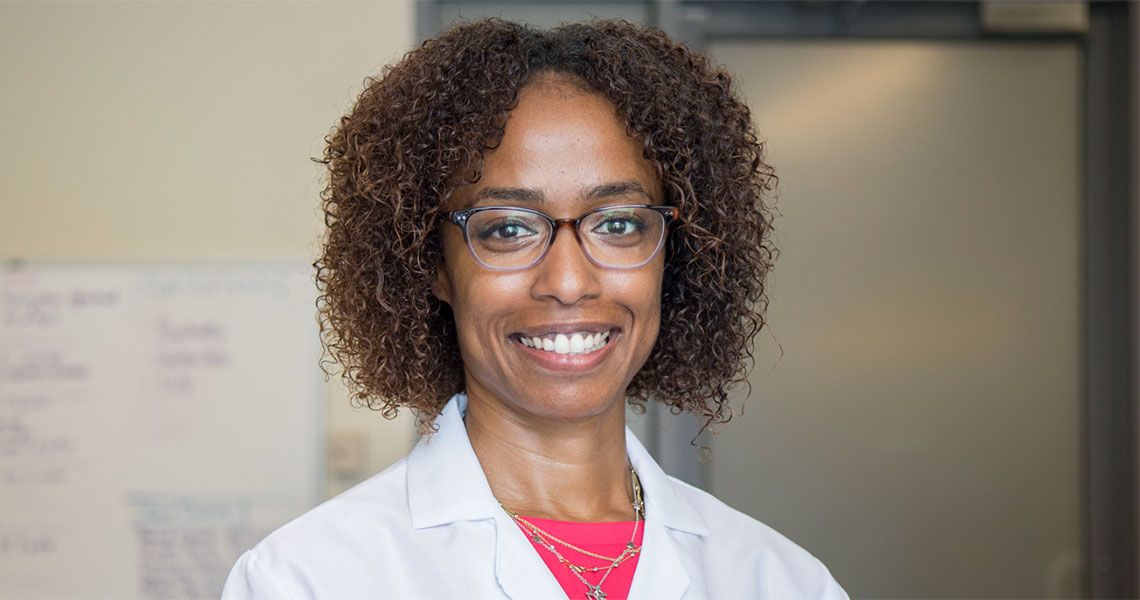Colorectal cancer is the third leading cause for cancer related deaths in the United States, and March is Colorectal Cancer Awareness Month. The public is reminded that regular cancer screenings, even when no signs or symptoms of disease are present, is an important step in saving lives. Here, Danyelle Davis, MSN, RN, board-certified nurse practitioner in colon and rectal surgery at The GW Medical Faculty Associates (GW MFA), discusses colorectal cancer and available cancer screening options.
What is colorectal cancer and how common is it?
Davis: Colorectal cancer is an abnormal cellular growth within the colon and rectum called a polyp. Some polyps can turn into cancers, but a majority are benign when found. A majority of patients with colorectal cancer are symptom-free, which is why screening is so important.
Most cases occur in persons age 45 and older, but unfortunately it is becoming increasing prevalent among the younger population as well. About 150,000 Americans are diagnosed with colorectal cancer disease each year, according to the American Cancer Society.
How dangerous is colorectal cancer and who is most at risk?
Davis: Colorectal cancer can lead to death. Most cases occur in persons 45 and older, but different risk factors and underlying disease can increase the risk in younger persons as well. In the United States, the overall prevalence of colorectal cancer among average-risk people is about 4%. The incidence is approximately 25% higher in males than in females and 20% higher among Black Americans than white Americans.
Your risk is also increased if you have family members who have had colon cancer, especially a parent or a sibling. Certain diseases, such as ulcerative colitis, also can increase your risk for colon cancer.
There are a lot of different colorectal cancer tests out there, how do patients know which test to get?
Davis: There are a number of testing options available, such as stool tests, sigmoidoscopy, and colonoscopy. People should talk with their primary care doctor regarding their individual risk factors.
There are several types of stool tests, such as the fecal occult blood test, the fecal immunochemical test (FIT), and the FIT DNA test, that all can be done at home using test kits from your health care provider.
A flexible sigmoidoscopy involves inserting a thin, flexible, lighted tube inside the rectum and lower third of the colon to check for polyps or cancer.
A colonoscopy is similar to a sigmoidoscopy, where a flexible camera is inserted through the rectum, enabling the physician to evaluate the entire colon. During a colonoscopy, if something appears abnormal or suspicious, a biopsy is performed, where a piece of the lining is removed and examined under a microscope. Doctor can often remove polyps and some cancers during the procedure.
Each test has its advantages and disadvantages, and your doctor can guide you through the pros and cons.
When and how often should patients get screened for colorectal cancer?
Davis: It depends on individual risk factors, but the Centers for Disease Control and Prevention recommends that patients should start screening for colorectal cancer at age 45, and get screened for every five to 10 years there after, depending upon the test.
Does the GW MFA offer colorectal screening?
Davis: Yes! Again, if patients are younger than 45 years of age, they can check with their primary care doctors to see whether they are at risk. If
they are 45 or older, they should schedule a test as soon as they can. Colorectal cancer screening is covered by most health insurers, as well as Medicare and Medicaid.
What happens if a patient receives a positive result?
Davis: If a person has a positive result, then further testing would be done as well as consultation with a cancer specialist and colon and rectal surgeon. At The GW MFA, a multidisciplinary team of radiologists, oncologists, colorectal surgeons, gastroenterologists, and pathology specialists would develop a unique treatment strategy to meet the individual needs of the patient.
To make an appointment with a colorectal surgeon, visit the Center for Colon & Rectal Surgery at the GW MFA or call 202-741-3243.



